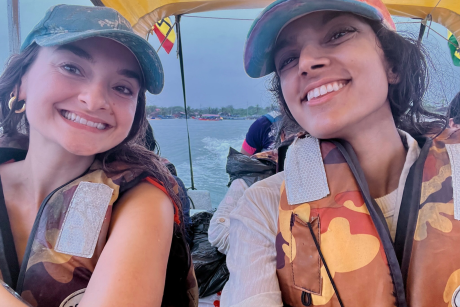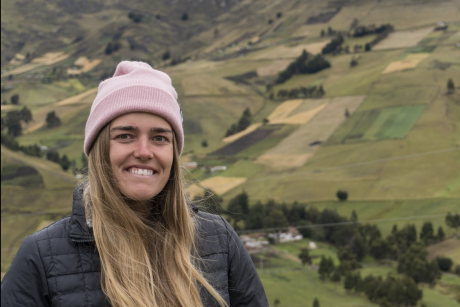Avi Kenny, one of the Duke Global Health Institute’s newest faculty members, says it was a “chance connection” that paved his way to Duke.
Kenny was in the final year of a Ph.D. program in biostatistics at the University of Washington in Seattle when he met Liz Turner, Ph.D., as part of a research-methods discussion group. Turner, a biostatistician who directs DGHI’s Research Design and Analysis Core, mentioned that her department was recruiting for a faculty position focused on global health.
“I knew I wanted a job where I could use my skillset to improve the lives of people in the developing world and marginalized populations,” says Kenny, whose research areas include evaluating global health programs and data quality assurance in low-resource settings. “It was immediately clear to me this was a group that I would love to work with.”
After a formal search, Kenny was offered a position as an assistant professor in Duke’s Department of Biostatistics and Bioinformatics with a secondary appointment at DGHI. And that meant making a nine-day cross-country road trip with his fiancée, their collection of more than 100 houseplants, and a 16-year-old cat named Reba.
“We didn’t like the idea of taking Reba on an airplane, and the best way to transport houseplants is to drive them yourself,” says Kenny, who began his position in February.
Kenny spoke with DGHI about how he made the cross-country trek to North Carolina, his time living across Africa and how his mother inspired his approach to helping improve the lives of others.
How did you make the move from Seattle to Durham?
We packed an RV and built a wooden structure to keep the plants from falling over. We had help from friends and it took six hours to pack everything. We drove down the coast of California, headed east across Arizona, and navigated through a massive snowstorm. We had a campsite booked for every night to sleep, but had to redirect our route because of the storm. The trip took nine days.
What are your current roles at Duke?
I conduct methodological research in statistics and provide support in terms of study design, statistics, data analysis and data collection to faculty doing global health research. One project I’m working on now is with Gayani Tillekeratne, M.D., an assistant professor of medicine and global health, on antimicrobial resistance in patients in Sri Lanka. I look forward to teaching statistics in the future to undergraduate and graduate students.

The RV that carried Avi Kenny and his...
Where does your interest in global health come from?
When I was in undergrad at Brown University, I worked for an organization called Gardens for Health International, and I went to Rwanda in 2010. I had traveled internationally before as a tourist, but I had never seen a developing country with my own eyes. I knew when I graduated, I wanted to live and work abroad to help improve the lives of people who hadn’t grown up with the same privileges as me.
After my senior year, I worked in Liberia with Last Mile Health, whichtrains community health workers to provide basic healthcare services in rural and remote communities in the country. One thing our team was tasked with was geographic mapping of the districts we served, which involved equipping teams of motorbike riders with GPS units and smartphones. We needed to know where all of the people actually were, which was not possible without creating our own maps and demographic data sets.
What motivates you to work in global health?
To me, the field of global health research represents an opportunity to have a positive impact on people’s lives by improving primary care systems. I’ve wanted to use my life to create positive change; this drive was instilled in me by my mother, who founded a network of charter schools in Harlem. She has dedicated her entire career to improving the quality of education for disadvantaged kids, and I have an enormous amount of respect for what she has done.
Math and statistics aren’t easy for everyone. What’s your advice to Duke students who may struggle in those areas?
People often think of themselves as an English person or a history person, but those viewpoints can be limiting. Finding a good teacher is incredibly important, but it’s also critical to know your learning style. I have a visual style,, and I learned the underlying theory of linear algebra from a series of YouTube videos. But as with many fields, the most important thing is hard work.



